Nursing Assignment: Case Study, Diagnosis, and Intervention Plan
VerifiedAdded on 2022/10/10
|6
|1243
|169
Case Study
AI Summary
This nursing assignment presents a case study of a 70-year-old male with a medical history of hypertension and hypercholesterolemia, experiencing memory loss and other cognitive impairments. The patient's symptoms include difficulty recalling family members, room number, and recent information, along with aggression, agitation, and nocturnal wandering. The assignment emphasizes the importance of determining the onset and triggers of memory loss, family history of neurological diseases, and the impact of medications like Ambien. Primary diagnoses involve cognitive and physical examinations, while secondary diagnoses focus on increased white blood cell counts and protein in urine. The assessment highlights the need to identify the underlying causes of memory loss, which could include conditions like Alzheimer's disease or dementia. Nursing interventions focus on cognitive activities, physical exercises, dietary modifications (Mediterranean diet), stress reduction, sleep pattern maintenance, and social engagement. The assignment also includes suggestions for family support and addresses potential problems such as memory difficulties and aggression. The comprehensive approach emphasizes a multidisciplinary treatment plan involving nurses, doctors, and family members to meet the patient's physical, psychological, and emotional needs. The assignment is supported by references to relevant research articles.
1 out of 6
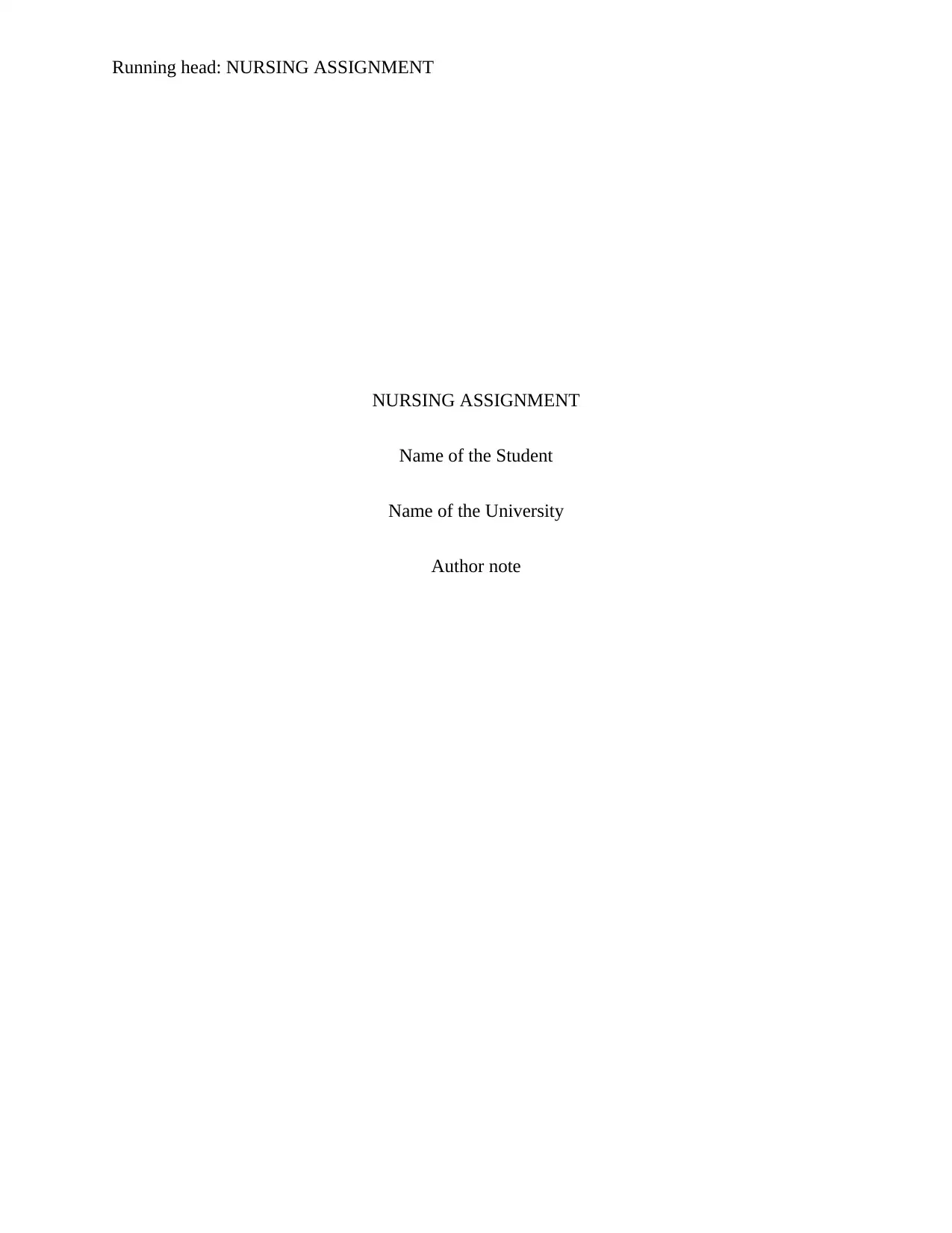
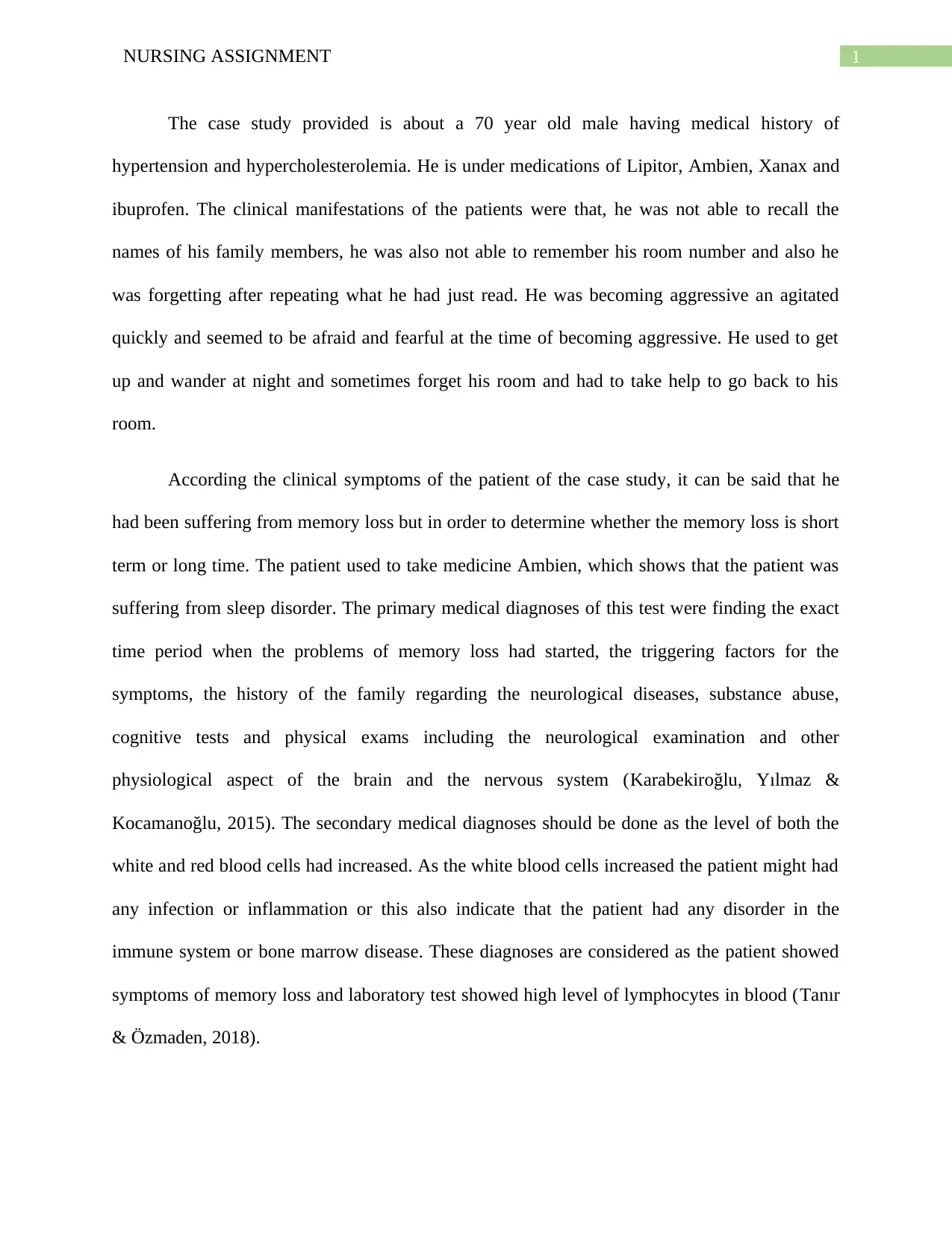
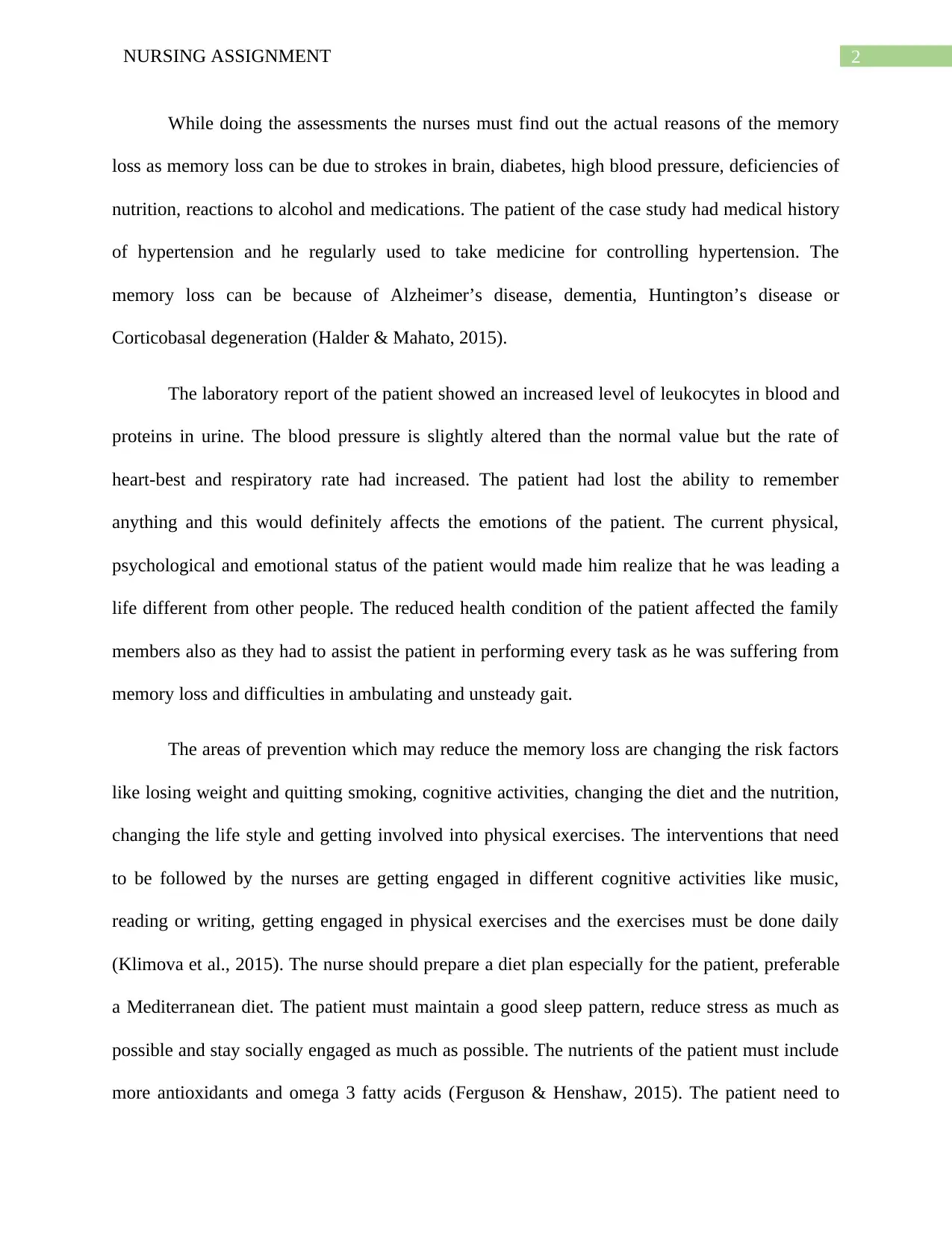

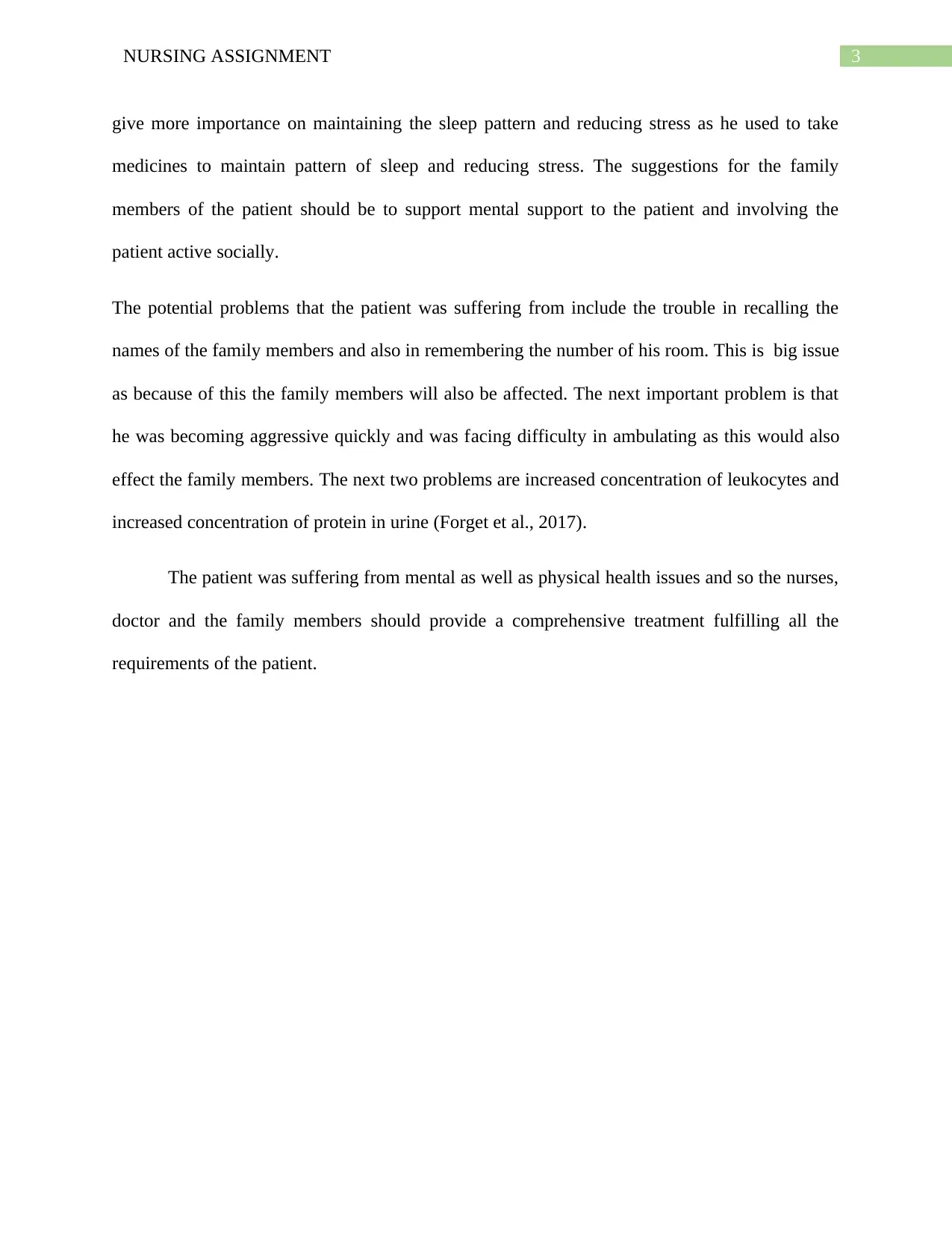
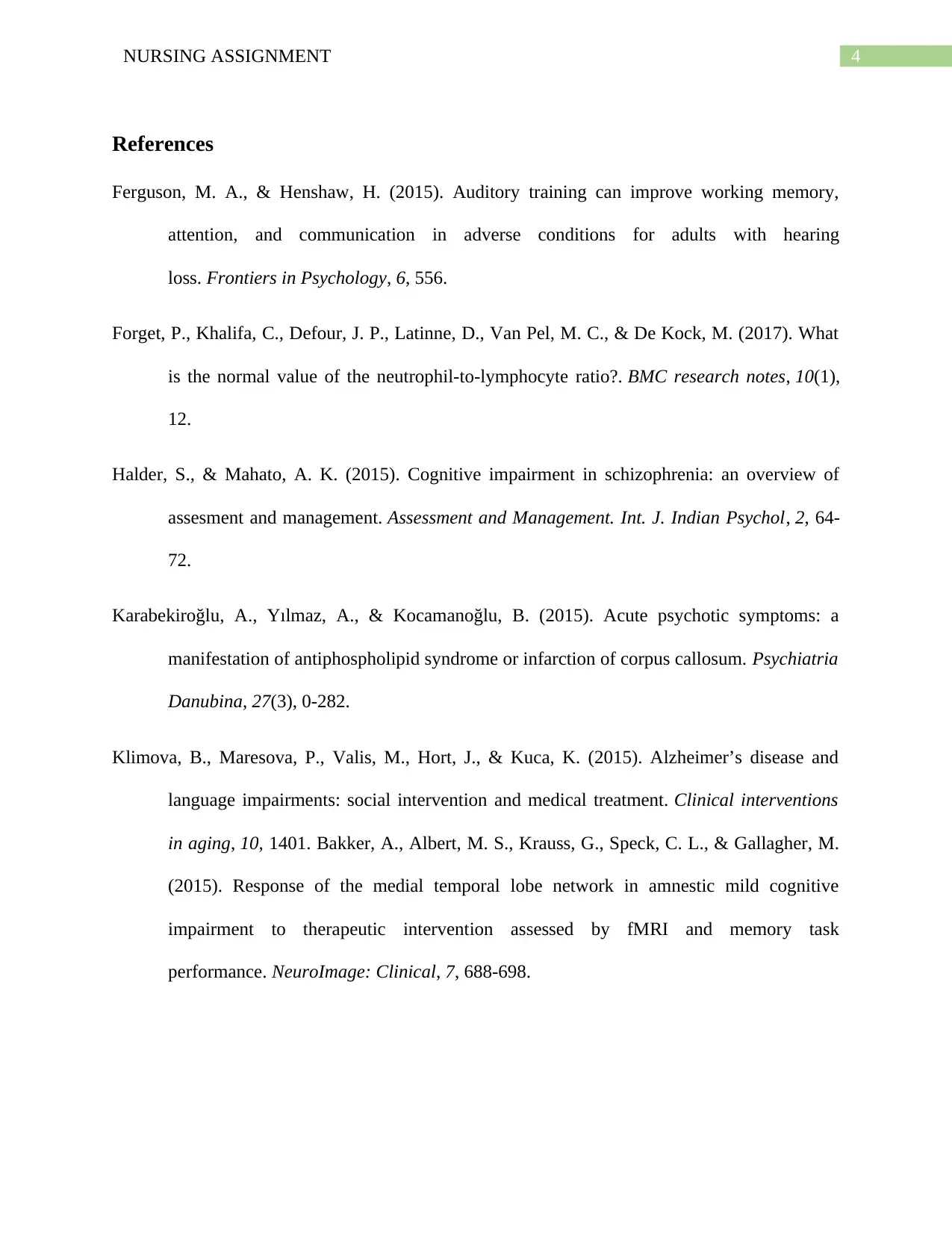







![[object Object]](/_next/static/media/star-bottom.7253800d.svg)